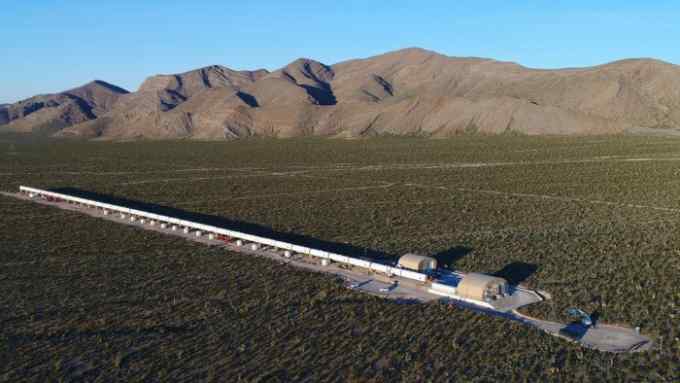What put Macedonia in World Bank’s top 10 ranking for investors

Simply sign up to the European companies myFT Digest -- delivered directly to your inbox.
Macedonia’s name was rarely uttered in the boardrooms of big tech companies or newsrooms before Donald Trump’s election as US president in 2016. But thanks to a handful of tech-savvy Macedonian teens and their wildly successful online fake news businesses, the country’s IT credentials have started to be noticed.
While the small Balkan republic of 2m people has not yet used the fake news phenomenon as a marketing tool, Invest Macedonia — the state investment promotion agency — wants to attract investors who could offer its teenage fake-news producers and other jobless citizens work as software programmers.
Previous hopes of a surge in tech investment into Macedonia have been disappointed. Research published in February showed that while the government has slashed taxes and red tape over a 10-year period to lure investors, foreign direct investment targets have not been met.
According to the Balkan Investigative Research Network (BIRN), almost a third of foreign investments announced during this period have not materialised. In total, only around 20,000 jobs were created out of 60,000 promised. In IT — the most overhyped sector — only 10 of 15 promised investments have been realised.
Officials say progress has been made, if not at the optimistic levels first forecast.
“What changed after 2007 was that any investor looking at outsourcing in eastern Europe would at least consider Macedonia,” says Aleksandar Klashninoski, who worked with Invest Macedonia when the agency launched a big marketing push in the late 2000s. “That wasn’t the case before.”
Macedonia’s population is a small fraction of nearby EU member states such as Romania, which host offshore programming bases for large tech companies like Microsoft. But smaller-scale investors — such as UK insurance software developers S4i — say they are pleased with their decision to base support staff in Macedonia.
“I reviewed a number of locations in Europe and chose Skopje due to the ease of creating a foreign-owned subsidiary, a relevant and skilled labour force and of course the cost model,” says Jools Goringe, who leads a team of 25 in S4i’s Skopje office.
The country’s investment pitch is based on four elements: ultra-low taxes and wages, high-level political engagement and a reduction of red tape. It was crafted by the conservative VMRO-DPMNE government of former prime minister Nikola Gruevski, who cut corporate tax rates to 10 per cent and launched the marketing campaign targeting foreign investors.
Many investors pay virtually no corporate or income tax in Macedonia, thanks to special economic zones provided for greenfield projects. They also benefit from generous state subsidies, the workings of which are not publicly disclosed.
Macedonian wages average €502 gross per month, meaning cheap labour is a selling point. “We offered European-quality labour at Chinese prices,” says Mr Klashninoski.
Small to mid-level investments worth between €10m-€30m would not receive prime ministerial treatment — such as personal high-level meetings and offers of discussions in the event of difficulties — in other eastern European countries, but they do in Skopje.
“That’s what set us apart and it’s reassuring for investors,” adds Mr Klashninoski.
The government also launched a deregulation offensive using a specialised committee to revamp legal codes to bring them in line with the World Bank’s annual Ease of Doing Business report criteria.
Macedonia ranked 10th in the 2016 list, an astonishing result that placed the country higher than all but three EU member states. That raised eyebrows and added to scepticism around the rating system, which records formal regulatory changes but not the actual experiences of companies in real-world settings.
Textiles and automotive parts remain the country’s main exports. Unlike big manufacturing investors like Johnson Matthey, which employs hundreds in the production of emissions catalysts for cars, the tech investment has come to Macedonia has been modest.
Musala Soft, a Bulgarian software company that was among the most loudly touted foreign investors, is still working to reach its stated 2019 target of €20m investment and 300 jobs. By the end of 2016, the company had invested just €142,755 and hired 88 people.
There has been definite progress, says Aleksandar Janev, one of the author’s of BIRN’s report on investment. But transforming the country, a candidate country for Nato and EU membership, into a Balkan Silicon Valley is unlikely to happen overnight: “For years, the government has been trying to show Macedonia is an investor’s paradise,” he says. “It’s very easy for them to brag and announce millions of euros of investments but the real investment is much smaller.”
Boosting FDI levels will be a task for Macedonia’s new government, which finally took office in May after December’s elections. The new government will have to restore confidence after a two-year long political crisis sparked by allegations of historical government abuses that prompted international mediation and unsettled investors.
Mr Janev says: “We now need the political stability that will attract investors and the jobs that will stop so many young people emigrating.”

Comments